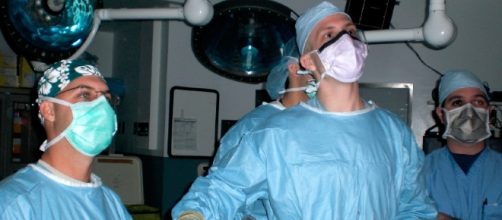With the Center for Disease Control and Prevention estimating nearly 68.8 percent of adult Americans aged 20 and older to be obese, it comes as no surprise that the weight loss industry is big business. In addition to the standard pills and potions that promise to deliver results to desperate dieters, Weight Loss Surgery has emerged as a leading option in the treatment of obesity. Patients are increasingly opting to go under the knife in efforts to shed excess weight. Nearly 96,000 patients have undergone gastric banding surgery since 2001 when the FDA approved the surgery for the treatment of morbid obesity.
Research shows high rates of re-operation.
Emerging research paints a different picture of gastric band surgery. A study published by JAMA Surgery clearly links gastric band surgery to elevated rates of costly re-operation. The study reports nearly 20 percent of gastric band patients required re-operation due to complications and/or malfunctions of their initial gastric surgery.
Complications of gastric band surgery include band erosion, band slippage, and patient failure to lose weight. Band erosion is dangerous because the foreign object, the gastric band, erodes into the wall of the patient's stomach. Band slippage, commonly known as a “slip,” is especially dangerous because a slip almost always causes a potentially fatal obstruction in the patient, and failure to lose weight leaves the gastric band patient at risk for obesity related ailments, including diabetes, PCOS, high blood pressure, infertility, and heart disease.
Corrective re-operations include: device removal, replacement of the device, and revision to alternate bariatric surgeries. On average, patients requiring expensive re-operation usually undergo four additional surgeries, and those surgeries don't come cheap.
The same JAMA Study linking gastric band surgery to re-operation reports that Medicare paid $470 million for gastric banding surgery between 2006 and 2013. Of the $470 million paid, nearly $224 million was paid toward re-operation or corrective surgeries. JAMA Surgery's study reports 77.3 percent of gastric band expenses were paid toward re-operation as of 2013.
Due to the high rate of complication and frequent necessity of re-operation, doctors have started shying away from referring, recommending, or endorsing gastric band surgery.The author's of the JAMA Surgery Study have went on record stating,“Taken together, these findings indicate that the gastric band is associated with high re-operation rates and considerable costs to payers, which raises concerns about its safety, effectiveness, and value.”
Fifty percent less effective than alternate
bariatric procedures, patient failure has proven to be a considerable deterrent in doctor endorsement of gastric band surgery.
As gastric band surgery continues to decline in popularity alternate methods of bariatric surgery with proven success rates continue to gain popularity. Studies indicate that gastric bypass patients have a reported success rate of 65 percent - 85 percent, with 50 percent of patient's maintaining their initial weight loss, while reports find nearly 50% of gastric band patients failed to lose their excess weight.
As long as the sedentary, fast food driven American way of life continues, morbid obesity will remain a chronic health condition, and the weight loss industry will continue to boom. Desperate people will continue to take desperate measures, including having weight loss surgery, even as new research proves dangerous complications and side effects.
A new study has proven a clear link between bariatric surgery and problems with alcohol. However, there may be hope for those wanting to lose weight without surgery. The newest technique in non-surgical weight loss management, the endoscopic sleeve gastroplasty, has proven both effective and safer than surgery. In America's battle against morbid obesity, only time will reveal successful methods and practices.


